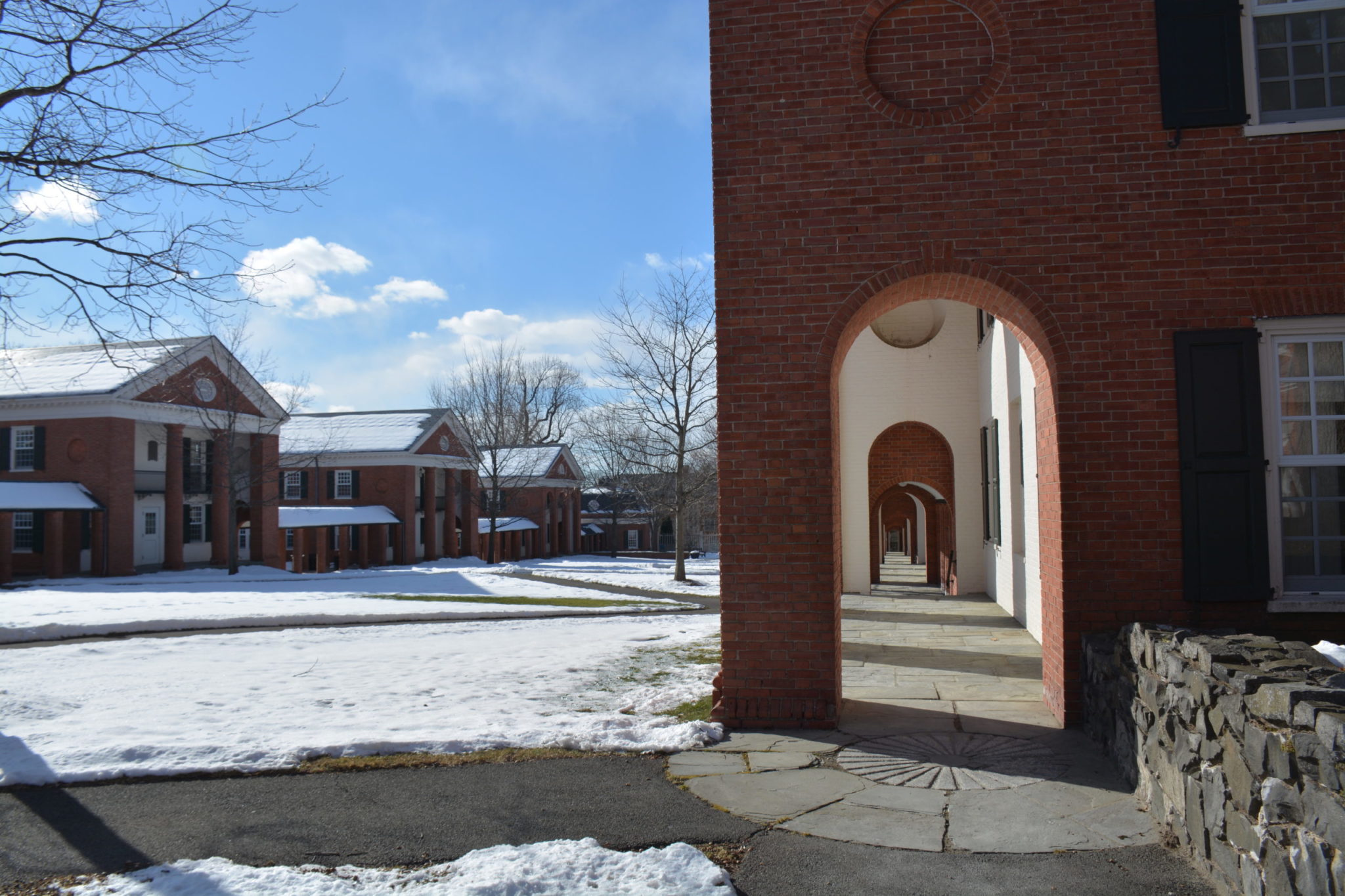Yale Divinity School’s Living Village to break ground in 2023
The Living Village will replace the Divinity School’s current student apartment complex and will feature a sustainable design.

Yale Daily News
The Yale Divinity School’s Living Village, a proposed residential space that would produce zero waste and house around 150 of the School’s students, is set to open in 2024.
In a Monday announcement, the University said the development will break ground in 2023 — a date that can be set now that the project has been approved by the Yale Corporation and has raised sufficient funding from donors. The building, which has been marketed as the “largest residential living-building project in the education sector,” will replace the current student apartments that opened in 1967. Alongside the zero-waste policy, officials plan for the Living Village to only use the water that falls on site and rely completely on solar power.
“The Living Village will be the most compelling example of what is possible in increasing the pace of change in environmental solutions,” Barbara Sabia, the YDS senior director of alumni engagement and development, told the News. “As Divinity students prepare to build and lead communities of their own, this learning laboratory will expand their potential to bring sustainable practices to their service to the church and world.”
Dean of Yale Divinity School Greg Sterling said in Yale’s press release that the school was deeply grateful for the donors who supported the project. According to Sterling, the Living Village will offer subsidized housing for YDS students and challenge universities around the world to rethink sustainable residences.
The Divinity School worked with Jason McLennan to devise the project. McLennan is the founder of the Living Building Challenge, a program that has put together a set of rigorous standards to create environmentally-friendly buildings. Once completed, the Living Village will be the largest academic Living Building Challenge project in the world.
The Challenge is a part of the greater International Living Future Institute, a global non-profit organization that specializes in green buildings.
“The Living Village is a great opportunity to serve students, but best of all, to have Yale serve as an example of an institution leading in sustainable solutions,” Yale School of the Environment Dean Indy Burke said in the press release.
The Living Village will also help Divinity school students with living costs. The complex will offer below-market rental rates, which could be cheaper than off-campus housing options around the Divinity School.
The Living Village is also intended to foster community and bonding. According to the press release, the complex will be designed to maximize “frequent and natural” social interactions.
Divinity School officials noted that fostering a spirit of belonging and inclusivity played a key role in the design process for the planned residence. According to the press release, the Divinity School’s architecture is particularly “Jeffersonian,” with the campus taking inspiration from the University of Virginia quadrangle. The Living Village’s design, however, will depart from the Jeffersonian style — which Sterling noted is a nod to a past that “did not welcome all” — and will instead feature a design that “looks to the future.”
“The values of equity and inclusion must infuse all that we do at YDS, including the way we design our built spaces,” Sterling said in the press release. “The Living Village will accomplish this in powerful ways, not only for the benefit of the students who will live there in the near future but for the benefit of future generations and the planet they will inherit.”
The Yale Divinity School was established in 1822.







